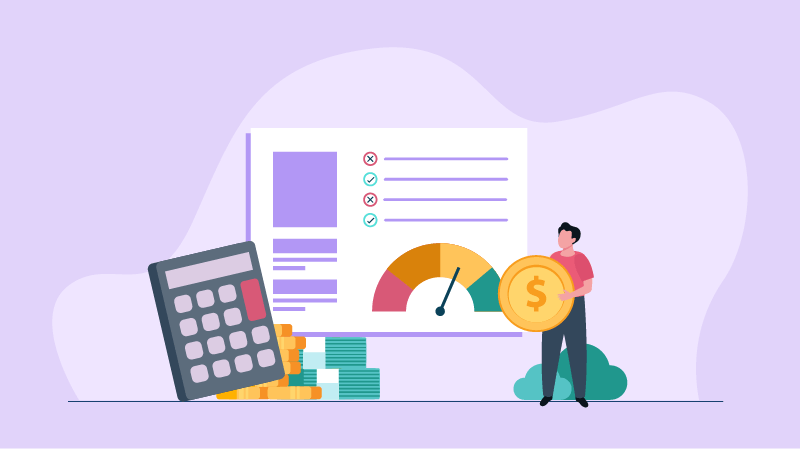Managing employee pay is no longer just about spreadsheets and manual approvals. In 2025, businesses are under pressure to offer competitive, equitable, and transparent compensation structures that align with performance and company goals. This is where compensation management software comes in. It helps HR and finance leaders automate salary adjustments, ensure compliance, and stay ahead in the talent market. Here is our shortlist of our top Compensation Management Software:
What is Compensation Management Software?

Compensation management software is a specialized HR platform that automates salary, bonus, equity, and benefits management. Instead of relying on manual processes, organizations can use these tools to:
Automate payroll and bonuses to minimize errors
Align pay with performance using integrated evaluation systems
Maintain compliance across jurisdictions
Benchmark salaries against real-time market data
Enhance transparency through employee self-service portals
SaaSworthy Insight: Companies that adopt compensation management platforms typically reduce payroll errors by 30 to 50 percent and improve retention because employees perceive pay as fair and transparent.
What Redditors Think: In HR and SaaS subreddits, professionals often note that switching to a dedicated tool eliminates “back-and-forth with finance” and prevents disputes over pay. One user shared that adopting Pave helped them “win offers faster” because salary bands were backed by reliable benchmarks.
Key Features to Expect in 2025
Core Functionalities
Automated Payroll & Benefits: Handles salaries, commissions, and bonuses with accuracy.
Performance-Based Pay: Links pay outcomes directly to performance metrics.
Compliance Tools: Built-in support for labor laws and tax regulations.
Employee Portals: Transparent access to pay history and total rewards.
SaaSworthy Insight: Employee self-service portals reduce HR query volumes by up to 40 percent, allowing HR teams to focus on strategy instead of manual troubleshooting.
Advanced Features
AI-Powered Recommendations: Suggests pay adjustments based on internal and market data.
Real-Time Benchmarking: Compares pay ranges globally to maintain competitiveness.
Predictive Analytics: Forecasts future compensation costs and budgets.
Pay Equity Analysis: Detects disparities across roles, genders, or demographics.
What Redditors Think: Tech workers on Reddit often highlight that real-time benchmarking tools like Deel and OpenComp prevent companies from “lowballing” engineers — which directly impacts employer reputation in competitive talent markets.
Top 10 Compensation Management Software for 2025
Emerging Trends in 2025
AI-Powered Salary Bands: SaaSworthy data shows more HR leaders are using AI-driven salary recommendations to speed up offer cycles.
Equity and DEI: Reddit discussions point out that employees now expect companies to publish pay bands and equity audits — transparency has become table stakes.
Global Pay Models: Remote-first teams need solutions like Deel or Aeqium that handle compliance and benchmarking across multiple currencies.
Expert Verdict
Compensation management software is now a strategic enabler, not just an HR tool. Platforms like Deel help with global compliance, Pave with market benchmarking, and Decusoft with pay equity.
SaaSworthy Take: The right platform reduces disputes, accelerates hiring, and builds trust with employees, hence catering to all critical factors in today’s competitive job market.
FAQs
What is the main purpose of compensation management software?
Compensation management software helps organizations automate and optimize employee pay, bonuses, equity, and incentives. Its main goal is to ensure fairness, compliance, and alignment between performance and rewards.
How does compensation management software ensure pay equity?
These platforms analyze pay data across demographics (gender, role, geography, etc.) to flag disparities. Automated workflows and policy-driven pay bands reduce bias in salary decisions.
Can small businesses benefit from compensation management software?
Yes. While SMBs often rely on spreadsheets, tools like TriNet or Compease offer lightweight solutions with benchmarking and structured pay planning, making them affordable and scalable for smaller teams.
What types of compensation can be managed through these tools?
Modern solutions handle:
Base salaries and hourly wages
Bonuses (performance, retention, merit-based)
Sales commissions and incentives
Equity and stock options
Long-term incentive programs
Benefits and perks valuation
How does salary benchmarking work in these platforms?
Benchmarking involves comparing your company’s pay against market averages using live data feeds or salary surveys. Tools like Deel and Pave integrate with global databases, giving HR leaders updated insights to stay competitive.
How long does it take to implement compensation management software?
Implementation can take anywhere from a few weeks to a few months, depending on the platform and organizational complexity. A phased rollout with pilot teams is often recommended.
SaaSworthy Tip: Choose vendors that provide onboarding specialists and training modules to reduce adoption friction.
How secure is compensation data on these platforms?
Most top vendors are SOC 2, GDPR, and ISO certified. They use encrypted databases, role-based access, and audit logs to protect sensitive salary data.
Can these platforms integrate with existing HR or payroll systems?
Yes. Leading tools integrate with HRIS (like Workday, BambooHR), payroll providers (ADP, Gusto), and performance management systems, ensuring smooth data flow without duplicate entries.
What are the cost factors for compensation management software?
Pricing varies by vendor and features. Factors include:
Number of employees/seats
Global payroll vs. local use
Advanced analytics or benchmarking add-ons
Compliance features and integrations
SaaSworthy Insight: Most SMBs spend between $5,000 and $20,000 annually, while enterprises pay more for global payroll coverage.
What do users dislike about compensation management software?
Some platforms can be expensive for small teams
Learning curve for complex equity and incentive modeling
Limited customization in lower-tier plans
The post Best Compensation Management Software in 2025: Top Tools to Streamline Pay and Performance appeared first on SaaSworthy Blog | Top Software, Statistics, Insights, Reviews & Trends in SaaS.





